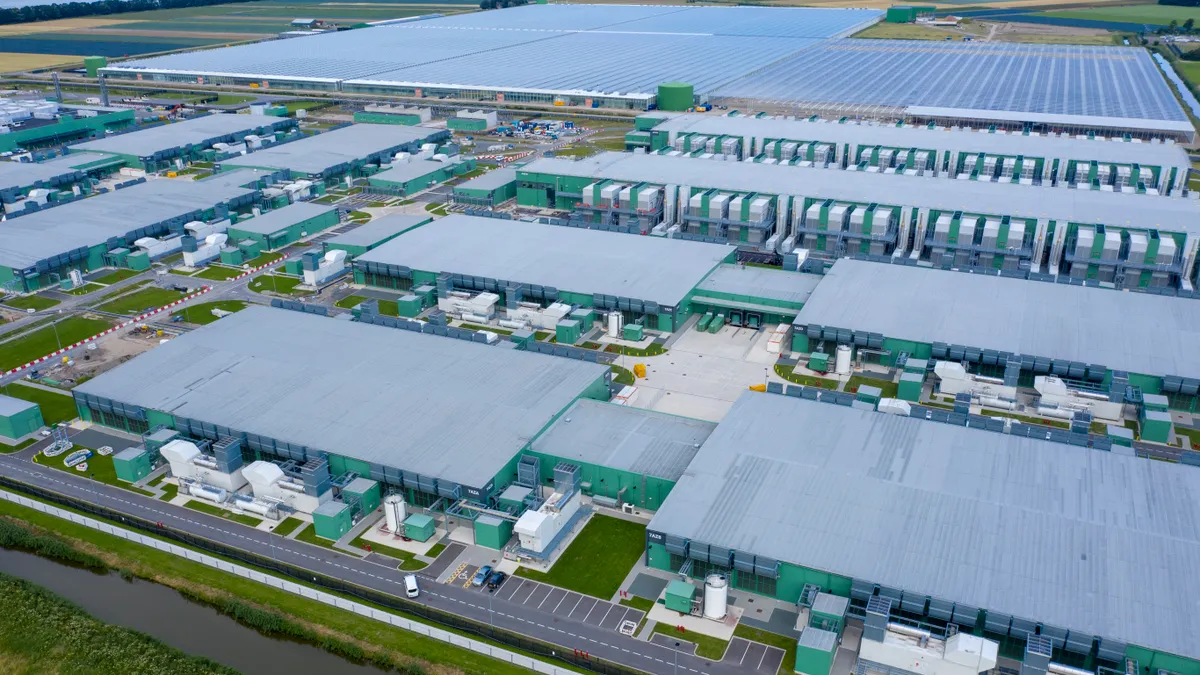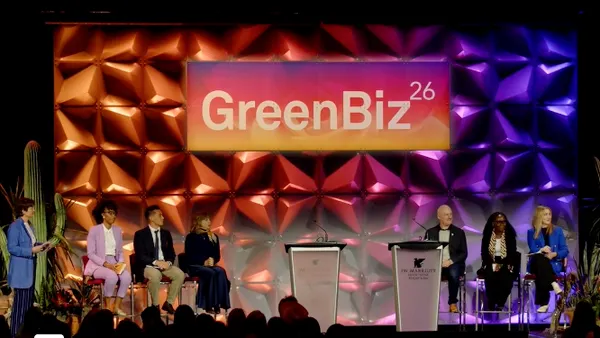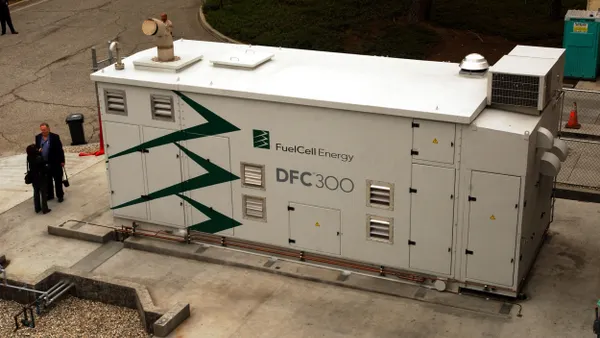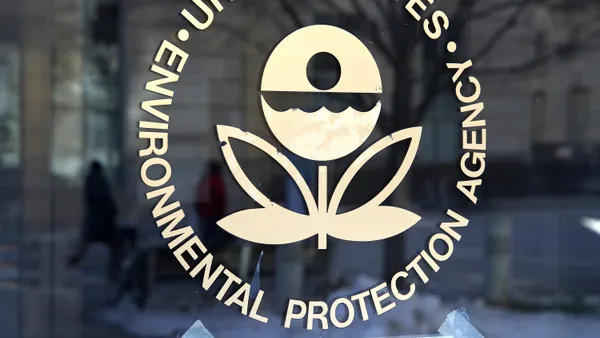Dive Brief:
- U.K.-based retailer Marks & Spencer announced Wednesday it has teamed up with Schneider Electric to launch a program to decarbonize its fashion supply chain and accelerate progress towards its sustainability goals.
- The multinational apparel, food and homeware goods company said the “RE:Spark” program aims to fast-track the adoption of renewable electricity across its supply chain. As part of the program, M&S will host webinars and regional market briefs to educate and train suppliers about procuring renewable electricity in five key regions: China, India, Bangladesh, Vietnam and Turkey.
- The program is in line with M&S’ broader sustainability strategy, which includes a goal to achieve net-zero emissions across its supply chain by 2040.
Dive Insight:
M&S said the program will initially focus on high-impact regions across its fashion supply chain, but plans to expand it over the next three years.
RE:Spark will offer suppliers a digital platform, which will host the program, powered by Schneider Electric’s Zeigo Hub. The hub, launched by the energy company earlier this year, allows companies to engage suppliers, view supplier participation, track and manage supply chain emissions and monitor decarbonization efforts according to Schneider Electric.
The program will also provide advisory services to help suppliers evaluate and implement clean energy solutions. These will include help with solar power, green tariffs, energy attribute certificates and power purchase agreements, according to a Nov. 19 release.
M&S said the initiative represents its commitment to “look beyond its own operations and spark change across its supply chain.”
In its latest sustainability report, the retail giant said the majority of its total carbon footprint — 95% — comes from scope 3 greenhouse gas emissions, primarily generated by products purchased from its food and fashion, home and beauty businesses. M&S has a 2040 goal to reduce scope 3 emissions tied to its energy and industry operations by 90% and scope 3 emissions related to forestry, land and agriculture by 72%, compared to a 2023 base year.
“RE:Spark is designed not only to ignite new ideas and unlock renewable energy opportunities for our supply base, but also to make the transition easier by providing access to support and resources,” Katharine Beacham, M&S’ head of sustainability and materials in fashion, home and beauty, said in the release. “By acting as a facilitator, we can help our suppliers build networks and resilience for the long term — sparking a movement of change across the industry and beyond.”
This isn’t the first time Schneider Electric has teamed up with a fashion retailer to help it cut its corporate carbon footprint. In September, the energy company partnered with Levi Strauss & Co. to help the denim manufacturer expand access to renewable electricity across its global supply chain. The two companies launched the Levi Strauss & Co. Energy Accelerator Program — unveiled during NYC Climate Week — in a bid to help Levi’s meet its near-term sustainability targets.













